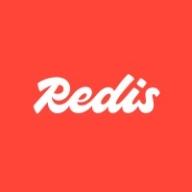

Find out in this report how the two Database as a Service (DBaaS) solutions compare in terms of features, pricing, service and support, easy of deployment, and ROI.
It is ensuring we receive what we pay for through the blend of price, performance, and features.
If you're managing your own data center, you always have to overprovision your systems and pay for storage space you're not using.
We've reduced costs by about 20 percent after two or three years.
Microsoft played a significant role, even from a training perspective, and provided resources that directed us toward the right deployment path.
Once I reach the right people, the support is incredibly knowledgeable and thorough.
Microsoft provides excellent service and is always available to support us.
Scaling the solution is incredibly simple and involves just clicking a button or dragging a slider.
Azure's scalability features like Elasticity are essential.
Microsoft Azure SQL Database is cloud-based, so it's great for scaling workloads.
Data migration and changes to application-side configurations are challenging due to the lack of automatic migration tools in a non-clustered legacy system.
We can't tell the difference between running on-prem or Azure because we no longer have those latency issues.
SQL never crashes or suddenly becomes unavailable.
I would assess the reliability of Microsoft Azure SQL Database in terms of maintaining uptime and availability as being excellent with zero complaints.
Redis is fairly stable.
It would be helpful if CPU performance were not pinned to the amount of storage you're using, and we could scale different properties of the Azure SQL database independently.
As a customer, I believe something which has been established, stable, and rugged for a very long time also needs cost optimization.
I could not get an accurate quote on what my monthly costs would be based on my needs.
Data persistence and recovery face issues with compatibility across major versions, making upgrades possible but downgrades not active.
Azure Hybrid Benefit reduced costs by facilitating an easy transition of on-premises databases to the cloud.
Microsoft Azure SQL Database is not cheap.
It greatly reduces the total cost of ownership through efficient licensing depending on the client, the cost savings, and hybrid benefits.
Since we use an open-source version of Redis, we do not experience any setup costs or licensing expenses.
The simplicity in usability, along with improved organizational productivity where we no longer need to maintain on-premises SQL servers, is invaluable.
The Software as a Service model is more effective and easier to access in terms of security, as Azure provides security at the security layer, reducing the risk of breach.
Using Microsoft Azure SQL Database is very easy; it's much easier than SQL on-premise because I don't have to worry about deploying infrastructure, and I can rapidly deploy via infrastructure as code.
It functions similarly to a foundational building block in a larger system, enabling native integration and high functionality in core data processes.
| Product | Market Share (%) |
|---|---|
| Microsoft Azure SQL Database | 10.7% |
| Amazon RDS | 13.5% |
| MongoDB Atlas | 12.3% |
| Other | 63.5% |
| Product | Market Share (%) |
|---|---|
| Redis | 22.6% |
| Amazon ElastiCache | 18.1% |
| Google Cloud Memorystore | 14.1% |
| Other | 45.199999999999996% |

| Company Size | Count |
|---|---|
| Small Business | 59 |
| Midsize Enterprise | 17 |
| Large Enterprise | 61 |
| Company Size | Count |
|---|---|
| Small Business | 11 |
| Midsize Enterprise | 3 |
| Large Enterprise | 9 |
Microsoft Azure SQL Database is a relational database-as-a-service that delivers predictable performance, scalability, business continuity, data protection, and near-zero administration to cloud developers and solution architects. This is the deep technical library for Azure SQL Database.
Redis offers high-speed, in-memory storage, renowned for real-time performance. It supports quick data retrieval and is used commonly in applications like analytics and gaming.
Renowned for real-time performance, Redis delivers high-speed in-memory storage, making it a favorite for applications needing quick data retrieval. Its diverse data structures and caching capabilities support a broad array of use cases, including analytics and gaming. Redis ensures robust scalability with master-slave replication and clustering, while its publish/subscribe pattern renders it reliable for event-driven applications. The solution integrates smoothly with existing systems, minimizing performance tuning needs. Although documentation on scalability and security could be improved, Redis remains cost-effective and stable, commonly utilized in cloud environments. Enhancing integration with cloud services like AWS and Google Cloud and refining GUI may improve usability.
What are the key features of Redis?Redis finds application across industries for tasks like caching to improve application performance and speed, minimizing database load. It enables real-time processing for session storage, push notifications, and analytics. As a messaging platform, Redis handles high traffic and supports replication and clustering for cross-platform scalability.
We monitor all Database as a Service (DBaaS) reviews to prevent fraudulent reviews and keep review quality high. We do not post reviews by company employees or direct competitors. We validate each review for authenticity via cross-reference with LinkedIn, and personal follow-up with the reviewer when necessary.